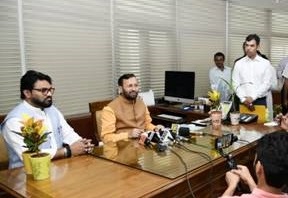The Robotic Process Automation (RPA) adoption in India has picked up pace as enterprises focus on developing automated intelligent process automation bots to support their users and employees round the clock. (See: RPA-led tools helping enterprises sail safely through a storm). Despite the benefits RPA offers, many companies struggle to maximize the value of their RPA implementations. Let’s delve deeper into some of the critical steps to a successful RPA implementation for enterprises.
These steps can also ensure there is no gap between reality and expectations from an RPA initiative.
#1. Define your objectives
RPA is a game-changing digital transformation initiative, automating several traditional mainframe applications by leveraging AI/ML-based software robots. At the backdrop of the pandemic triggered economic slowdown, businesses are increasingly exploring intelligent automation and RPA for refining quality while controlling costs.
According to McKinsey, RPA can deliver up to 200% ROI in the first year of deployment and 20-25% cost savings. Additionally, it also enables organizations to enhance compliance, become risk-averse and strengthen the customer experience. The mundane and time taking processes turn fast, and users get an opportunity to switch to higher-value work.
However, like every strategic technology investment, RPA investments need to be evaluated based on their potential utility to a particular enterprise or a process.
There is no one size fit all solution! As a first RPA implementation step, the process you select for RPA should be carefully mapped against your end-goals. Before you assign the process execution from your employees to bots, you need to set clear goals around what you want to accomplish from a specific RPA implementation and the financial aspects of the deployment.
#2. Select your processes intelligently
An overarching strategy for process selection and implementation should be in place before you move to RPA. The most critical goal that drives RPA adoption is achieving enterprise efficiency for highly repetitive tasks. RPA tools imitate a human being’s actions by following a rule-based structured approach to accomplishing specific routine tasks, helping employees retrieve a significant proportion of their time.
Hence, as a key step for a successful RPA implementation, the process you select for RPA should be mature, predictable, and stable, high-volume, involve a considerable amount of repetitive human efforts, based on pre-defined data patterns, and evaluated on measurable savings. For instance, data validation, extracting data from PDFs, and employment history verification.
#3. Build an execution team
It is paramount for any automated process that a group of team members is assigned to keep a closer look at all the change-related developments and flag any inconsistencies. This team is often called as Center of Excellence (CoE) team for RPA projects.
Enterprises that do not have the right capabilities and resources or deploy the RPA model for the first time can also support specialized external consultants to facilitate RPA implementations effectively.
#4. Develop a robust change management plan
The success of any RPA initiative is dependent mainly upon how internal employees perceive the change. Similar to any other digital transformation initiative, RPA is also bound to cause apprehension among impacted employees.
While some team members may follow a cautious approach for any recent change, others may like to debate the relevance of change. Moreover, there could be a fear of job losses, change of roles, the transition to a new team, anxiety around lack of training to supervise any new tool, and more.
A robust change management plan includes addressing these fears and anxieties, upskilling and reskilling impacted teams, setting up a robust governance framework, providing the necessary knowledge to groups about the positive impact that RPA will bring for the business. The technology heads and project leads should encourage people to ask relevant questions and engage them through focus group discussions or one-on-one interactions to understand the objectives behind the RPA implementations.
#5. Make sure to conduct the pilots
Any automation process is a long-term journey and needs sustained efforts for success. Do not expect to gain immediate benefits by deploying software robots. It’s a continuous process and needs several pilots before you ultimately obliterate any process-related obstacles or iron out flaws for a smooth run. It is advisable to have a multiple-phase rollout if the process spans several business operations geographies and impacts people from across teams.
Planning for pilots is one of the essential steps to any successful RPA implementation. Pilot implementations of RPA provide an excellent operating overview of the control frameworks, governance structure, and training to ensure that objectives align with expectations; remove reserves, if any; and get buy-in from key stakeholders.







0 Comments